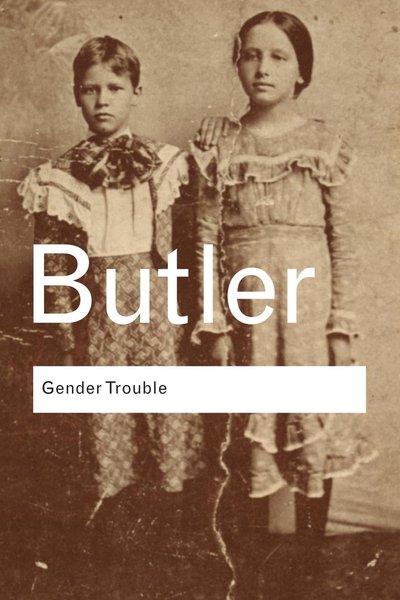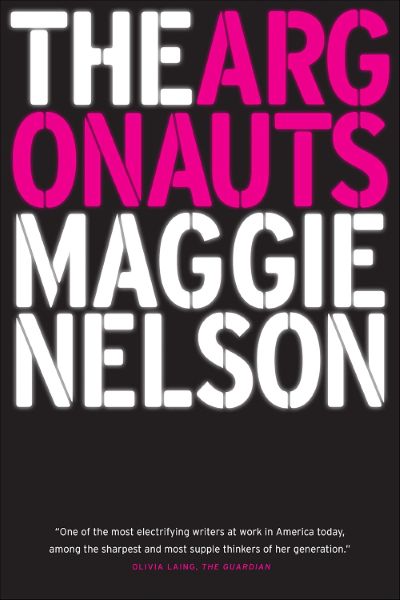Gender Trouble: Feminism and the Subversion of Identity
This groundbreaking work fundamentally redefined feminist theory's understanding of gender by introducing the theory of gender performativity. Butler challenges the notion that gender is a biological fact or fixed identity, arguing that gender is produced through repetitive performative acts—a theoretical framework that radically transformed feminist theory, queer theory, and gender studies.

📝 Book Review
Judith Butler’s 1990 “Gender Trouble: Feminism and the Subversion of Identity” is not merely an academic work but a theoretical revolution. This book fundamentally redefined our understanding of gender, with its influence extending far beyond academia into contemporary culture, politics, and social movements. As a foundational text of postmodern feminism and queer theory, it challenges virtually every traditional assumption about gender and sexuality.
Origins of a Theoretical Revolution
Butler wrote “Gender Trouble” in response to deep contradictions she observed within 1980s feminist theory. The feminist movement faced a fundamental paradox: while needing to mobilize politically in the name of “women,” this identity politics might reinforce the very gender binary it sought to challenge. Butler keenly recognized that feminist theory needed an entirely new conceptual framework to resolve this dilemma.
This theoretical need was particularly urgent in the political context of the time. While second-wave feminism had achieved important gains, it also faced criticism from women of color, lesbians, and transgender individuals who pointed out that mainstream feminism ignored the intersectionality of gender oppression with other forms of oppression. Butler’s work was a theoretical response to these critiques, attempting to establish a more inclusive and open feminist framework.
The Core Concept of Gender Performativity
Butler’s central innovation lies in the concept of gender performativity. Unlike traditional views that see gender as the cultural expression of biological sex, Butler argues that gender is produced through repetitive performative acts. This performance is not conscious acting but patterns of behavior repeatedly enacted under the compulsion of social norms.
This theoretical insight has profound philosophical implications. It overturns traditional binaries of essence and appearance, cause and effect. Gender is not what we are (being) but what we do (doing). More precisely, it is this continuous “doing” that creates the illusion of the gendered subject itself. There is no pre-existing gender identity awaiting expression; rather, expression itself creates the identity it claims to express.
Butler illuminates this point through analyzing drag performance. Drag is not an imitation of “real” gender but reveals that all gender performance is imitation, a copy of a non-existent original. This analysis challenges not only heterosexual hegemony but also any notion of “natural” or “normal” gender.
Critique and Reconstruction of Feminist Theory
“Gender Trouble” offers a sharp critique of traditional feminist theory, particularly the assumption of “women” as a unified political subject. Butler argues that attempts to define the essential characteristics of “women” are not only theoretically untenable but politically harmful, as they inevitably exclude certain people and reinforce the power structures they claim to challenge.
This critique does not aim to abandon feminist politics but to rethink its foundations. Butler proposes a model of politics based on coalitions rather than identity. This politics does not presuppose a unified subject but forms temporary alliances in specific political struggles. This approach preserves the possibility of collective action while avoiding the exclusivity of identity politics.
Butler’s analysis particularly focuses on the operation of the heterosexual matrix. This concept describes the assumed necessary correlation between sex, gender, and desire: biological males should exhibit masculinity and desire females, and vice versa. By deconstructing this assumed necessity, Butler opens new theoretical space for understanding the diversity of gender and sexuality.
Philosophical Sources and Theoretical Dialogue
Butler’s work is deeply rooted in poststructuralist philosophical tradition. She creatively synthesizes insights from multiple theorists, including Michel Foucault’s theories of power and subjectivity, Jacques Derrida’s deconstruction, Jacques Lacan’s psychoanalytic theory, and Simone de Beauvoir’s existentialist feminism.
From Foucault, Butler borrows the productive concept of power—power not only represses but produces subjects. Gender norms are not external constraints but conditions for constituting subjects. From Derrida, she learns how to deconstruct binary oppositions, showing how seemingly stable categories depend on what they claim to exclude. From Lacan, she absorbs the complexity of subject formation, particularly the role of language in constituting subjects.
However, Butler does not simply apply these theories but critically transforms them. For instance, she criticizes Lacan’s tendency to naturalize the symbolic order, arguing that patriarchal law is not an unchangeable structure but can be subverted and rearticulated.
The Birth of Queer Theory
“Gender Trouble” is widely recognized as one of the foundational texts of queer theory. Although Butler herself did not use the term “queer” in her writing, her work laid the foundation for queer as a theoretical and political stance. By challenging fixed categories of gender and sexuality, she created a theoretical framework for understanding and celebrating the fluidity of gender and sexuality.
The core insight of queer theory—that identity categories themselves are effects of power—derives directly from Butler’s analysis. This theoretical stance does not seek to establish new identity categories but to continuously question and subvert all attempts to fix identity. This critical position has profoundly influenced the LGBTQ+ movement, providing both theoretical weapons and new political strategies.
Impact Across Disciplines
The influence of “Gender Trouble” extends far beyond feminist theory and gender studies. In literary criticism, it has changed how we read gender representation. In sociology, it has promoted a more nuanced understanding of gender as social construction. In anthropology, it has challenged assumptions about gender universality. In political theory, it has redefined the possibilities and limitations of identity politics.
In psychology, Butler’s work, though initially resisted, eventually promoted a more complex understanding of gender identity. Clinical practice began recognizing gender fluidity, positively impacting mental health services for transgender and gender non-conforming individuals.
In legal studies, the theory of gender performativity provided a theoretical foundation for challenging legal frameworks based on biological essentialism. This has had significant impact on legal debates about transgender rights, same-sex marriage, and gender discrimination.
Critiques and Responses
“Gender Trouble” has also sparked intense criticism and debate. Some feminists worry that denying the stability of “women” undermines the foundation of feminist politics. If women are not a coherent category, how can political struggle be conducted in women’s name? Butler’s response is that essentializing definitions of “women” limit feminism’s inclusivity and transformative potential.
Another critique concerns materiality. Critics argue that Butler overemphasizes discourse and culture while neglecting the material reality of bodies. In response, Butler explored questions of materiality in more detail in her subsequent work “Bodies That Matter,” arguing that materiality itself is materialized through discursive practices.
There are also critiques about the practical implications of Butler’s theory. If gender is such deeply internalized performance, how can individuals resist or change it? Butler emphasizes that the possibility of variation and subversion exists in repetition. Each repetition may be imperfect, and this imperfection creates space for change.
Cross-Cultural Perspectives and Global Impact
While “Gender Trouble” is primarily based on Western philosophical traditions and political contexts, it has had profound impact globally. In different cultural contexts, the theory of gender performativity has been creatively applied and transformed.
In Latin America, Butler’s theory has encountered decolonial feminism, producing new understandings of the intersections of gender, race, and coloniality. In Asia, her work has promoted critical reflection on traditional gender norms while also sparking discussions about the cultural specificity of theory. In Africa, the concept of gender performativity has been used to analyze gender politics in postcolonial contexts.
This global dissemination has also brought important theoretical developments. Non-Western scholars have pointed out the Western-centric tendencies in Butler’s theory, prompting deeper thinking about the cultural specificity of gender performativity. This cross-cultural dialogue has enriched our understanding of gender complexity.
Contemporary Relevance and Future Directions
More than thirty years after publication, “Gender Trouble” remains increasingly relevant. In an era when transgender rights have become a global political focus, Butler’s critique of gender binarism provides important theoretical resources. In the digital age, when gender can be performed in new ways in virtual spaces, her theory gains new dimensions.
Current gender studies is developing Butler’s insights in multiple directions. New materialist feminism attempts to more fully consider materiality while acknowledging discursive construction. Transgender studies is developing more nuanced theories to understand the diversity of gender experiences. Disability studies uses the concept of performativity to analyze the social construction of ability.
Facing attacks from right-wing populism and religious fundamentalism on “gender ideology,” Butler’s work has also gained new political urgency. Her theory is not just an academic exercise but an important weapon for defending gender and sexual diversity.
Theoretical Legacy and Continuing Impact
The legacy of “Gender Trouble” lies not only in its specific theoretical points but in the ways of thinking it pioneered. It teaches us to question seemingly natural categories, recognize the historicity and politicality of identity, and understand how norms acquire the appearance of naturalization through repetition.
This critical mode of thinking extends far beyond gender studies. It has inspired rethinking of various identity categories including race, class, ability, and age. It has promoted deeper understanding of how power operates through producing subjects. It has opened space for imagining different ways of being and political possibilities.
Butler’s work has also changed academic writing itself. Her dense, challenging style—often criticized as obscure—actually embodies her theoretical stance. By resisting straightforward expression, her writing practices the resistance to fixed meaning she advocates.
Conclusion: Continuing Trouble
The title “Gender Trouble” itself is a manifesto: make trouble, question order, subvert norms. This is not chaos for chaos’s sake but to create new possibilities for those marginalized and excluded by existing orders.
Through this work, Judith Butler has not only changed how we understand gender but, more importantly, how we understand understanding itself. She shows how theory can become political practice, how thought can shake seemingly solid social structures.
In a world where gender norms still cause immense suffering and injustice, “Gender Trouble” continues to remind us: these norms are not natural laws but social constructions that can be questioned, resisted, and changed. This recognition is both a promise of liberation and a call to action. As Butler demonstrates, theory is not just description of the world but a tool for changing it.
Book Info
Related Topics
🛒 Get This Book
 Buy on Amazon
Buy on Amazon Related Books
Book Discussion
Share your thoughts and opinions on this book and exchange insights with other readers
Join the Discussion
Share your thoughts and opinions on this book and exchange insights with other readers
Loading comments...


